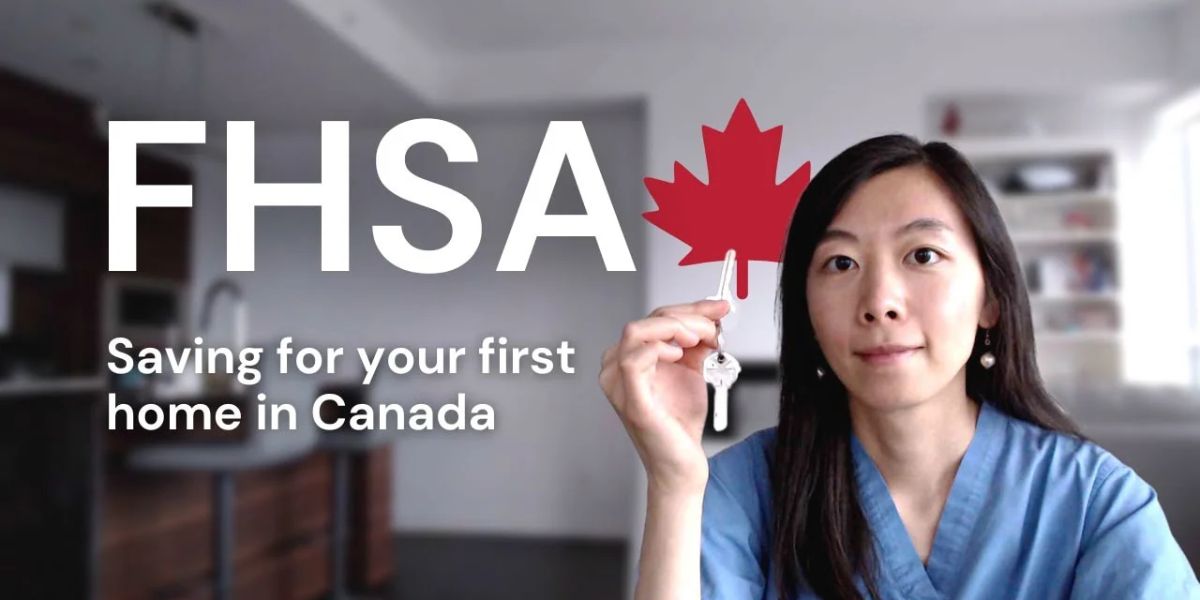The Canadian housing market has long been a challenging landscape for first-time buyers, with soaring property prices and strict mortgage regulations making homeownership increasingly elusive.
Recognizing this struggle, the Canadian government introduced the first home savings account (FHSA) in 2023, a new savings initiative designed to ease the financial burden for Canadians entering the housing market for the first time. With its unique tax advantages and accessible eligibility requirements, the FHSA offers a practical solution for those aspiring to own their first home.
What is the FHSA?
The FHSA is a savings program tailored specifically for first-time homebuyers, blending features from the registered retirement savings plan (RRSP) and the tax-free savings account (TFSA).
It provides the dual benefits of tax-deductible contributions and tax-free investment growth. Available to Canadians aged 18 to 71 who meet the first-time homebuyer criteria, the FHSA is a versatile tool for saving towards a down payment.
Key features of the FHSA
Contribution limits and tax benefits
The FHSA allows annual contributions of up to $10,000, with a lifetime cap of $40,000. Contributions are tax-deductible, reducing your taxable income for the year you contribute. For instance, a full $10,000 contribution could significantly lower your annual tax liability.
Read more: 2025 Social Security COLA: Expected 2.5% Increase and What It Means for Disability Benefits
In addition to these tax savings, the government provides a 25% matching contribution on FHSA deposits, up to a lifetime maximum of $10,000. This means for every $4,000 you contribute, the government adds $1,000—essentially offering “free money” to bolster your savings.
Carry-forward feature
Unused contribution rooms can be carried forward to future years, offering flexibility for individuals who might not be able to contribute the full $10,000 annually. This feature ensures that even those facing financial constraints can maximize their savings over time.
Eligibility requirements
To qualify for the FHSA, you must:
- Be a Canadian resident aged 18 to 71. In provinces where the legal age for entering contracts is 19, the minimum age adjusts accordingly.
- Meet the first-time homebuyer status. This means not having owned a home used as your primary residence in the current or any of the previous four calendar years. If you’re married or in a common-law relationship, neither you nor your partner can currently own a home unless you independently qualify under this criterion.
Types of FHSAS
The FHSA can be customized to suit different financial preferences:
- Depositary FHSA: focuses on low-risk investments like cash or guaranteed investment certificates (gics).
- Trusted FHSA: managed by a trust company and allows for diverse investments, including mutual funds and bonds.
- Insured FHSA: operates under an annuity contract with a licensed provider, emphasizing insured investment products.
How to open an FHSA
Here’s a step-by-step guide to opening your FHSA:
- Check eligibility: confirm you meet the age, residency, and first-time homebuyer criteria.
- Choose a financial institution: select a bank, credit union, or insurance company offering FHSA. Compare their services, fees, and investment options.
- Provide documentation: you’ll need your social insurance number (sin) and proof of birth date.
- Complete the application: follow the institution’s process to verify your eligibility and set up the account.
- Designate a beneficiary: assign a beneficiary to receive the balance in case of your death.
- Start contributing: begin saving up to the annual limit and claim deductions using Schedule 15 on your tax return.
- Monitor progress: regularly review your account and adjust your investment strategy to optimize returns.
Supporting first-time buyers
In a housing market where the average home price hovered around $716,000 in 2023, saving for a down payment is no small feat. The FHSA aims to alleviate this challenge with its tax savings and government contributions, helping buyers accumulate funds more quickly.
For instance, a consistent $10,000 annual contribution over five years, combined with the government’s 25% match, could provide substantial savings toward a down payment. This program is particularly beneficial for young Canadians early in their careers, offering a structured and incentivized pathway to homeownership.
A Broader Impact
The FHSA isn’t just a financial tool—it represents a step forward in addressing housing affordability for first-time buyers. As the program evolves, its effectiveness will be closely monitored by policymakers and financial institutions. Adjustments may be made to ensure the program remains relevant and continues to meet the needs of aspiring homeowners.
For Canadians navigating a competitive and expensive housing market, the FHSA is a beacon of hope. By combining immediate tax relief, investment growth, and government contributions, this initiative empowers first-time buyers to take meaningful steps toward achieving their dream of homeownership.
FAQ’s
1. What is a First Home Savings Account (FHSA)?
The FHSA is a savings program created by the Canadian government in 2023 to assist first-time homeowners in saving for a down payment. It combines the advantages of the RRSP and TFSA, allowing for tax-deductible contributions as well as tax-free investment growth. It allows eligible Canadians aged 18 to 71 to save up to $40,000 throughout the course of their lives.
2. What are the FHSA’s contribution restrictions and benefits?
The FHSA allows for annual contributions of up to $8,000, with a lifetime limit of $40,000. Contributions are tax-deductible, which reduces taxable income. Additionally, the government matches contributions by 25%, up to a lifetime limit of $10,000, providing significant savings incentives.
3. Who can open an FHSA?
To qualify for an FHSA, you must
Be a Canadian resident aged 18 to 71.
Meet the requirements for first-time homebuyer status, which means you have not owned a principal residence in the current or previous four calendar years. This regulation also applies to your spouse or common-law partner, unless you meet the requirements independently.

